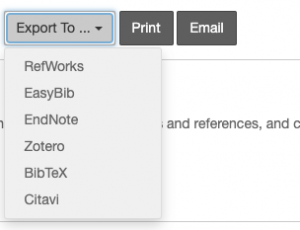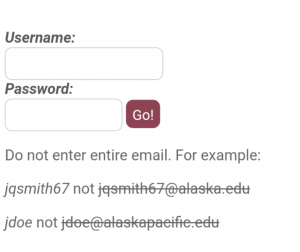Happy (belated) Indigenous Peoples Days! Let’s talk about indigenous research methodologies (IRM). Jelena Porsanger defines IRM as
. . . a body of indigenous and theoretical approaches and methods, rules and postulates employed by indigenous research in the study of indigenous peoples. The main aim of indigenous methodologies is to ensure that research on indigenous issues can be carried out in a more respectful, ethical, correct, sympathetic, useful and beneficial fashion, seen from the point of view of indigenous peoples. (Porsanger, Jelena. (2004). An Essay about Indigenous Methodology. Nordlit. 8(1): 105-20. 10.7557/13.1910.)
Want to learn more? Here are a few resources on indigenous research methodologies.

Bagele Chilisa’s book Indigenous Research Methodologies provides an extensive overview of IRM and how to use them. Chilisa, from Botswana, describes post-colonial perspectives, indigenous knowledge systems, culturally sensitive and responsive research methods, and decolonizing the research process.
Call #: GN380.C494 2012

“From Oceania to North America, indigenous peoples have created storytelling traditions of incredible depth and diversity. The term ‘indigenous storywork’ has come to encompass the sheer breadth of ways in which indigenous storytelling serves as a historical record, as a form of teaching and learning, and as an expression of indigenous culture and identity. But such traditions have too often been relegated to the realm of myth and legend, recorded as fragmented distortions, or erased altogether. Decolonizing Research brings together indigenous researchers and activists from Canada, Australia and New Zealand to assert the unique value of indigenous storywork as a focus of research, and to develop methodologies that rectify the colonial attitudes inherent in much past and current scholarship. By bringing together their own indigenous perspectives, and by treating indigenous storywork on its own terms, the contributors illuminate valuable new avenues for research, and show how such reworked scholarship can contribute to the movement for indigenous rights and self-determination.” –Publisher description of Decolonizing Research: Indigenous Storywork as Methodology.
Call #: GN378.D43 2019

“To the colonized, the term ‘research’ is conflated with European colonialism; the ways in which academic research has been implicated in the throes of imperialism remains a painful memory. This essential volume explores intersections of imperialism and research – specifically, the ways in which imperialism is embedded in disciplines of knowledge and tradition as ‘regimes of truth.’ Concepts such as ‘discovery’ and ‘claiming’ are discussed and an argument presented that the decolonization of research methods will help to reclaim control over indigenous ways of knowing and being.
Now in its eagerly awaited second edition, this bestselling book has been substantially revised, with new case-studies and examples and important additions on new indigenous literature, the role of research in indigenous struggles for social justice, which brings this essential volume urgently up-to-date.” –Publisher description of Decolonizing Methodologies: Research and Indigenous Peoples
Call #: GN380.S65 2012
 “Scholars understand what Indigenous research is, but how we practice Indigenous research ethically and respectfully in Canada is under exploration. This ground-breaking edited collection provides readers with concrete and in-depth examples of how to overcome the challenges of Indigenous research with respect to Indigenous worldviews, epistemologies, and ontology. In collaboration with their communities, and with guidance from Elders and other traditional knowledge keepers, each contributor links their personal narrative of Indigenous research to current discussions and debates. Accessible in nature, this interdisciplinary research tool is an essential read for all students and scholars in Indigenous Studies, as well as in the education, anthropology, sociology, and history research methodology classroom.” — Publisher description of Indigenous Research: Theories, Practices, and Relationships
“Scholars understand what Indigenous research is, but how we practice Indigenous research ethically and respectfully in Canada is under exploration. This ground-breaking edited collection provides readers with concrete and in-depth examples of how to overcome the challenges of Indigenous research with respect to Indigenous worldviews, epistemologies, and ontology. In collaboration with their communities, and with guidance from Elders and other traditional knowledge keepers, each contributor links their personal narrative of Indigenous research to current discussions and debates. Accessible in nature, this interdisciplinary research tool is an essential read for all students and scholars in Indigenous Studies, as well as in the education, anthropology, sociology, and history research methodology classroom.” — Publisher description of Indigenous Research: Theories, Practices, and Relationships
Call #: E76.7.I53 2018
 “Indigenous researchers are knowledge seekers who work to progress Indigenous ways of being, knowing and doing in a modern and constantly evolving context. This book describes a research paradigm shared by Indigenous scholars in Canada and Australia, and demonstrates how this paradigm can be put into practice. Relationships don’t just shape Indigenous reality, they are our reality. Indigenous researchers develop relationships with ideas in order to achieve enlightenment in the ceremony that is Indigenous research. Indigenous research is the ceremony of maintaining accountability to these relationships. For researchers to be accountable to all our relations, we must make careful choices in our selection of topics, methods of data collection, forms of analysis and finally in the way we present information. I’m an Opaskwayak Cree from northern Manitoba currently living in the Northern Rivers area of New South Wales, Australia. I’m also a father of three boys, a researcher, son, uncle, teacher, world traveller, knowledge keeper and knowledge seeker. As an educated Indian, I’ve spent much of my life straddling the Indigenous and academic worlds. Most of my time these days is spent teaching other Indigenous knowledge seekers (and my kids) how to accomplish this balancing act while still keeping both feet on the ground.” — Shawn Wilson, author of Research is Ceremony: Indigenous Research Methods
“Indigenous researchers are knowledge seekers who work to progress Indigenous ways of being, knowing and doing in a modern and constantly evolving context. This book describes a research paradigm shared by Indigenous scholars in Canada and Australia, and demonstrates how this paradigm can be put into practice. Relationships don’t just shape Indigenous reality, they are our reality. Indigenous researchers develop relationships with ideas in order to achieve enlightenment in the ceremony that is Indigenous research. Indigenous research is the ceremony of maintaining accountability to these relationships. For researchers to be accountable to all our relations, we must make careful choices in our selection of topics, methods of data collection, forms of analysis and finally in the way we present information. I’m an Opaskwayak Cree from northern Manitoba currently living in the Northern Rivers area of New South Wales, Australia. I’m also a father of three boys, a researcher, son, uncle, teacher, world traveller, knowledge keeper and knowledge seeker. As an educated Indian, I’ve spent much of my life straddling the Indigenous and academic worlds. Most of my time these days is spent teaching other Indigenous knowledge seekers (and my kids) how to accomplish this balancing act while still keeping both feet on the ground.” — Shawn Wilson, author of Research is Ceremony: Indigenous Research Methods
Call #: GN380.W554 2008
Want to see IRM in action? The library has access to many articles produced by researchers using IRM. Speak to your friendly reference librarians today if you’d like more information!






